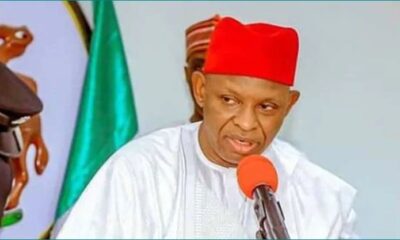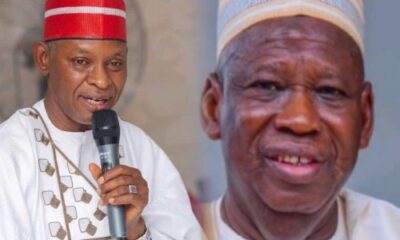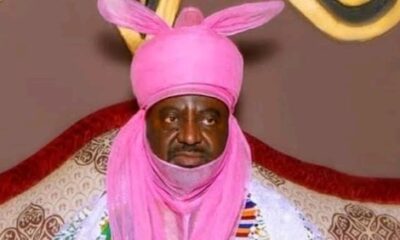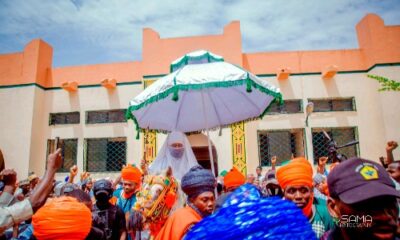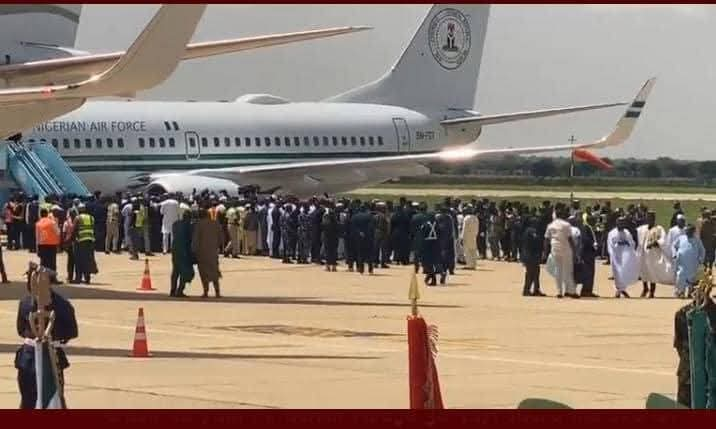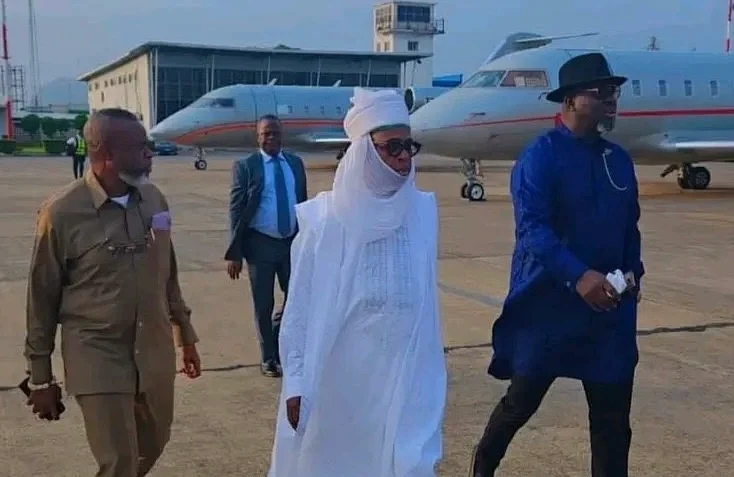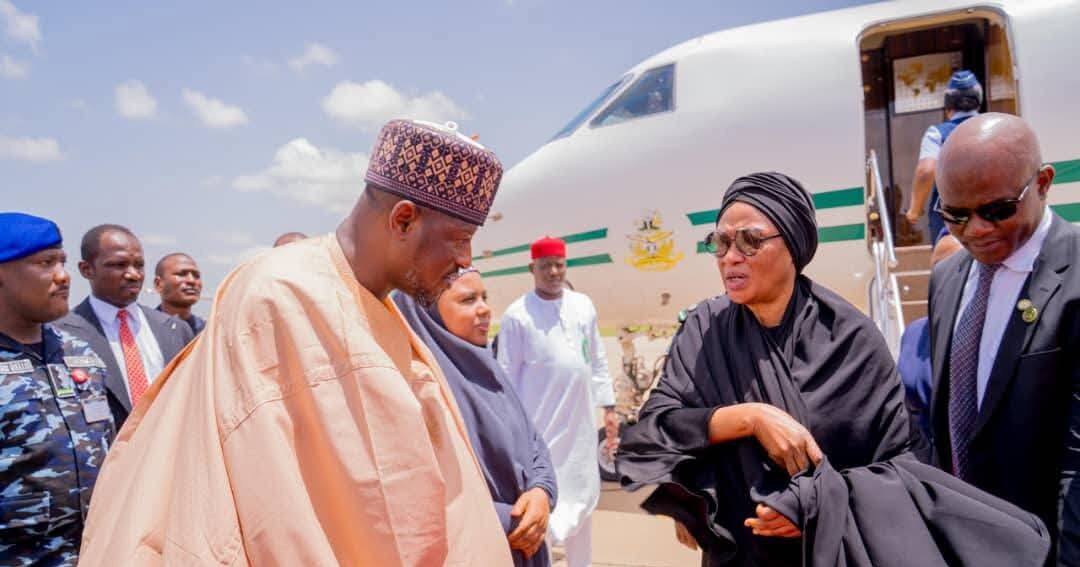The New Nigeria Peoples Party has gained more political members in Kano State as those who left the All Progressives Congress in anger have found a new home in the party.
Political events, such as the presidential and governorship elections, in Kano State, always generate interest among Nigerians because of the state’s political significance in the North-West region of the country. Kano, Lagos, Kaduna, Katsina, Rivers and other states alike have high voting populations, which parties scramble to have on their sides.
Presently in Kano State, none of the All Progressives Congress and the Peoples Democratic Party knows its fate as the New Nigeria Peoples Party has suddenly become the new destination of politicians in the state.
NNPP experienced a surge in membership when a crisis hit the APC following the alleged marginalization of some members, whose anger eventually made them dump the ruling party (APC) for the new party led by a former Governor of the state, Rabiu Kwankwaso.
This crisis led to the formation of two factions in the party after conducting parallel congresses for the officials at the ward, local government and state levels.
While one of the factions was loyal to the state Governor, Abdullahi Ganduje, the other was led by a former Governor of the state and now a Senator representing Kano Central Senatorial District, Mallam Ibrahim Shekarau.
The battle for the control of the party in the state prompted the two factions to go to court for each of them to be recognised as the authentic APC in the state.
The Federal Capital Territory High Court in Abuja, in November last year, handed over the control of the party in the state to the Shekarau’s faction after nullifying the congresses held by the Ganduje’s faction.
The incumbent governor’s faction later challenged the ruling at the Court of Appeal and the appellate court in a judgement, in February, set aside the lower court’s ruling which recognised the Shekarau’s faction as the authentic APC in the state.
However, dissatisfied with the ruling, the ex-governor, Shekarau’s faction, approached the Supreme Court to resolve the matter. In a ruling delivered on May 6, 2022, the apex court upheld the appeal court’s ruling and handed over the control of the APC to Ganduje’s faction.
The panel held that the appeal against the earlier judgements of the Court of Appeal in Abuja lacked merit and was therefore dismissed.
After the Supreme Court judgment, the factional Chairman of the APC under Shekarau, Haruna Danzago, dragged his counterpart and leader of the Ganduje’s faction, Abdullahi Abbas to the State High Court challenging his eligibility to be the chairman of the party in the state. The case is still pending in court.
Although there were concerted efforts to ensure an amicable resolution of the APC crisis in the state from various quarters including the party’s national headquarters and the Presidency, all the efforts hit the rock. The Presidency was said to have even invited Ganduje and Shekarau to the Villa in Abuja where a meeting was held as part of efforts to resolve the crisis but failed.
Unfortunately, all efforts to resolve the lingering crisis seemed to have failed as that did not prevent many prominent and influential members of the party in the state from leaving.
The Kano APC bigwigs that defected to the NNPP include Shekarau; a member representing Rano/Bunkure/Kibiya Federal Constituency, Alhassan Rurum; a member representing Takai/Sumaila Federal Constituency, Shamsudden Dambazau and the former member representing Kiru/Bebeji and a former Executive Director of the Federal Housing Authority, Jibrin Abdulmumini Kofa.
Others are former presidential liaison officer to the House of Reps, Abdulrahman Sumaila; former speaker of the House of Assembly, Kabiru Rurum; Deputy Speaker, Alhaji Zubairu Massu and a member representing Bagwai/Shanono at the State House of Assembly, Ibrahim Shanono.
Other notable politicians that left the party include the Chief of Staff to the Kano State Governor, Ali Makoda, and two House of Representatives members from the state, Tijjani Jobe and Badamasi Ayuba; the APC state auditor, Ahmed Muhammadu; Umar Mai Tsidau, the APC Youth leader and former Chairman of the Makoda Local Government; Halliru Maigari, a former member of the House of Assembly representing Rimingado/Tofa; and Hafizu Sani Maidaji, a former member of the state House of Assembly representing Dambatta.
Giving reasons for their defection, one of the defectors and former Kano Governor, Shekarau, said the lack of inclusiveness forced him out of the party, as elders of the party were not consulted before taking any decision.
“It’s not about me or that I want to return to the senate. This is far away from the issues; it’s about the involvement of the people. I told them when it started that there was no inclusiveness in the party affairs.
“Some people stayed somewhere and wrote about a 480-page party document without a single input from any of the elders of the party. The idea of our protest was to go together and allow people to participate in the process. If it is allocation, then allocate equitably,” Shekarau said.
Also speaking on why he dumped the APC and joined the NNPP, Abdulmumin Jibrin, the ex-lawmaker stated that his political life had been miserable in the last seven years due to the overbearing nature of the party’s leaders in his home state.
In his reasons for leaving the party, the member representing Takai/Sumaila Federal Constituency, Dambazau, said the recent and unfortunate developments within the party made it almost impossible for him to continue participating and making productive contributions to the advantage of the party and the people of his constituency.
However, reacting to the defection, Ganduje while speaking in an interview on a TVC programme, said despite the mass defection, the APC was still in the best position to win elections as it still had the strength in the state.
“Despite the recent mass defection suffered by the party, the APC remains the party to beat. It will hold the ace in the 2023 elections in the state,” Ganduje said.
However, in his argument, a senior lecturer with the Department of Political Science, Bayero University, Kano, Professor Habu Fagge, said the recent mass exodus of some politicians from the APC to the NNPP was posing a great danger to not only the APC but also to the PDP.
“With the resuscitation of the NNPP, it has now overshadowed the APC and the PDP in the state. So, the contest in the state will now be between the APC and the NNPP because the NNPP has support in the horizontal and vertical directions. Thus, the NNPP will be a hard nut to crack.
“People are predicting that if care is not taken, the NNPP may overshadow the two prominent political parties, the APC and PDP because the worry is about the intensity of the defection,” he said.
Another analyst and ardent supporter of the APC, Umar Namadi said the mass cross carpeting of APC stalwarts to Senator Kwankwaso’s resuscitated NNPP was undoubtedly giving sleepless nights to prominent APC members in the state.
NB: Some part of this publication was extracted from The Punch

 BIG STORY4 days ago
BIG STORY4 days ago
 BIG STORY5 days ago
BIG STORY5 days ago
 BIG STORY1 day ago
BIG STORY1 day ago
 BIG STORY5 days ago
BIG STORY5 days ago
 BIG STORY5 days ago
BIG STORY5 days ago
 BIG STORY13 hours ago
BIG STORY13 hours ago
 BIG STORY2 days ago
BIG STORY2 days ago
 BIG STORY3 days ago
BIG STORY3 days ago











